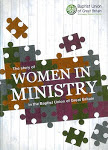Bloomsbury
Central Baptist Church,
4 November 2018
Matthew 16.13-19;
18.18-20
Ephesians 4.1-7
Listen to the sermon here:
https://soundcloud.com/bloomsbury-1/why-this-church-independence-and-interdependence
The question of independence and interdependence
is not merely
one of Baptist theology.[1]
We’re coming to it this morning
as part of
our regular communion series, called ‘Why This Church?’,
in which we look at what it means for us,
as
Bloomsbury Central Baptist Church
to be the
kind of church that we are;
exploring what makes us different from our good friends over
the road
in the
Anglican church, or the Swiss church,
or
from the Methodists, Quakers, United Reformed,
Roman
Catholic, or whatever…
And today in our series we come to this question
of
independence and interdependence.
But with Brexit looming large on the horizon,
and
dominating everything from the news headlines to this week’s budget,
it is not,
as I said, merely a question of Baptist theology.
The issue of how human beings relate to one another;
at local,
national, and international levels,
is a hot
topic in wider society as well.
And as I was preparing for today, I found myself thinking,
in a
slightly idealised manner I admit,
about the European Union,
and the
European Economic Community that preceded it.
Specifically, I found myself thinking about the principle of
subsidiarity.
It may be
that you’ve not come across this word before,
so
a brief history lesson may be helpful.
Subsidiarity is defined in European law as
‘the
sharing of powers between several levels of authority.’[2]
What this means in a federation of states like the European
Union,
is that the
wider organisational levels of the Union
do
not take all the decisions,
and that
power exists at a local level
to
take localised decisions wherever possible.
The purpose of the wider structure
is to
ensure that the localised decisions in one area
are in some
way connected to the localised decisions of another area.
It’s not to say that all local areas have to decide the
same.
Interestingly, this principle of subsidiarity
found its
way into European statute via Christianity,
specifically
via the Roman Catholic church,
who have thought
and published extensively
on
the way humans relate to each other
at
local and wider levels, for the good of all.
Catholic Social Teaching says:
What individuals can accomplish
by their own initiative and efforts should not be taken from them by a higher
authority.
A greater and higher social
institution must not take over the duties of subordinate organizations and
deprive it of its competence.
Its purpose, rather, is to
intervene in a subsidiary fashion (thus offering help) when individuals or
smaller institutions find that a task is beyond them.
-
YOUCAT 323.[3]
This has a lot in common with one of the principles of
community organising,
which is
that you should:
‘Never
do for others what they can do for themselves.’ - Saul Alinsky
That’s a quote from Saul Alinsky,
who set up
the organisation that we know in the UK as Citizens UK,
and which
we’re part of here at Bloomsbury
through our
membership of Westminster Citizens.
The point about Subsidiarity, is that wherever possible
decisions
should be taken at a local level,
and that wider structures do not exist to force
one-size-fits-all solutions
onto all
members of the union.
Now, we might have a conversation
about
whether the European Union has departed from this principle,
and your perspective on this may well determine (or be
determined by)
which
newspaper you read,
but regrettably this is a conversation for another day.
For now, I want us to notice the similarity
between the
principle of subsidiary as it exists within Catholic Social Teaching,
and the question of independence and interdependence
within the
world of Baptist churches.
The early Baptists were quite fond of writing what they
called ‘confessions of faith’,
which were
attempts to put into words
the
truth that they thought they were discerning together
about
how they should live as the body of Christ.
They weren’t once-for-all documents,
but (rather
like the European Union Constitution)
could be changed and amended by a process of revision and
discernment.
Here’s a couple of quotes for us to chew over,
from the
early years of the Baptists:
The London Confession of 1644 says:
Each congregation or church is ‘a
compact and knit citie in itself’.
-
London Confession (1644) Article XLVII
And the 1652 Abingdon Association Founding Minute says:
‘That perticular churches of
Christ ought to hold firme communion each with other
in
point of advice in doubtful matters and controversies …
because there is the same
relation
betwixt
the perticular churches each towards other
as there is betwixt perticular
members of one church.’
-
Abingdon Association (October 1652)
And here, in these two sentences
from our
Baptist ancestors in the middle of the seventeenth century,
we have the problem of independence and inter-dependence in
a nutshell.
We are independent insofar as each church is complete in and
of itself,
but we are
inter-dependent insofar as congregations need one another
to discern
on matters doubtful or controversial.
This same tension is present in the founding document
of the
Baptist Union of Great Britain,
which came into existence in 1873,
and with
some minor changes remains the basis of the Baptist Union to this day.
The first of its three points is:
1. That our Lord and Saviour
Jesus Christ, God manifest in the flesh, is the sole and absolute authority in
all matters pertaining to faith and practice, as revealed in the Holy
Scriptures, and that each Church has liberty, under the guidance of the Holy
Spirit, to interpret and administer His laws.[4]
The second point is to do with baptism by immersion,
and the
third is a commitment to bearing witness to Jesus.
The key thing to notice here, I think,
is that in
a document which is designed to set up the terms
of
the first ever national structure for Baptists in the UK,
the first
point is the independence of the local congregation.
The very document designed to bring about greater
inter-dependence,
begins with
a statement of independence.
And this is so important,
because for
Baptists, any relationships we have with other Baptists,
beyond
those we worship with week-by-week in our local congregation,
will always
be secondary.
The Baptist conviction,
based on
Jesus’ words in Matthew 18.20, which we had in our reading earlier,
is that where two or three are gathered in his name, he is
present.
This means that the primary unit of the church
is the
gathering of people in the name of Jesus.
Even if you only have two or three people, you can still
call yourself church,
and you can
still baptise, and celebrate communion,
and
ordain people to ministry,
and do all
of the things that the church does.
Those of us who have had experience of other Christian
traditions
will know
that this is very different to what is found in, for example,
our friends
over the road at the Anglican church.
There, the ‘church’ is the wider institution.
It is the
Priests who baptise and celebrate communion,
and
the Bishops who confirm and ordain.
Without the wider institution, the local Anglican
congregation is cut loose,
it is not
fully the church.
But for Baptists, if the Baptist Union disappeared in a puff
of smoke
or into a
pension deficit sized black hole,
the local congregations that bear the name Baptist could
just carry on.
We are independent before we are inter-dependent.
We are a
movement not an institution.
Did you know that it’s technically incorrect
to even speak
of the Baptists as a ‘Denomination’,
because our wider structures are not ‘the church’,
at least, certainly
not in the way
that they
are for many other Christian traditions.
However, does this mean that we don’t need each other?
Does this
mean that we here at Bloomsbury
can
dispense with the London Baptist Association,
or the Baptist Union and the Baptist
Assembly,
or
the Baptist Missionary Society,
or
the European Baptist Federation,
or
the Baptist World Alliance?
Sometimes it might feel tempting to answer ‘yes’ to this
question,
particularly
when we find ourselves in tension with the wider structures.
And at one level the answer is ‘yes’,
because if
we broke fellowship with the wider Baptist world,
we could
still carry on, on our own.
But the answer you know I’m going to give is ‘no’,
we can’t
just break fellowship with our fellow Baptists.
And the reason I think we can’t, or at least shouldn’t,
is because
we are bound to one another
by more
than pragmatic association.
There was a trend, a few years ago, to refer to Baptist
House
and the
various departments that are based there,
as the
‘national resource’.
This indicated a very functional view of the Baptist Union,
and came
from a view that there are some things
that it
just makes more sense to do together.
So, for example, ecumenical representation,
or
safeguarding, or legal advice on trust matters,
or holding
a list of people appropriately trained for ministry,
these kind of things are much easier to do at scale,
so we use
the ‘national resource’ to do them.
It’s all very pragmatic, and the basis of associating
together
is one of
mutual convenience.
Of course, this means that if it’s no longer convenient,
or less
convenient than getting those services elsewhere,
church will just leave and move on,
which is
exactly what has happened, in various waves, over the years,
as former
Baptist churches have left the Union
to
join the Church Army, or New Frontiers,
or
the Federation of Independent Evangelical Churches,
or
whatever.
But the interesting thing to note here,
is that
most of the churches that have left the Baptist Union
have
done so to join another form of union,
and often
one which has a much higher sense of ‘belonging’
than
the rather pragmatic basis
of thinking
of the Baptist Union as a ‘national resource’.
This says something profound to me,
because I
think that there is more to the Baptist Union
than just
some convenient departments, and some delegated services.
I certainly don’t believe that the wider Baptist structures
are
over-and-above the local Baptist congregation,
but I’m not sure that they are fully subordinate to us
either.
The Baptist Union, and the various geographical Associations
through
which churches belong,
are not merely a service industry for Baptist churches.
You see, if we are serious that the church is present
whenever
two or three are gathered together in the name of Jesus,
then the church is present at Baptist Association
gatherings,
and at
National Baptist Assemblies.
These are an expression of what it means to be Baptist.
The local
congregation is the primary expression of church,
but
it is not the only expression of church
that
can exist in a Baptist context.
The first time this started to make sense to me was when I
was 16,
and
attended the Baptist World Youth Congress in Glasgow, in 1988.
For the first time in my life,
I
discovered that the Baptist church existed
beyond the
Vine Baptist Church in Sevenoaks.
And it was amazing.
It was
multi-ethnic, it was multi-voiced,
it
was inspiring, exciting, challenging.
It was
brilliant,
and I believe it was a foretaste of
the coming kingdom of God.
As a teenager exploring a call to Baptist Ministry,
to realise
that my Baptist family extended around the world,
and
related in ways I had never even imagined,
was truly
life-changing.
This is why, every year except this year,
I’ve always
prioritised attending the Baptist Assembly.
And I would have gone this year
but we had
a wedding here which I was taking.
For me, missing these wider gatherings
is a bit
like missing Christmas with my wider family.
It’s possible to do it,
but I know
I’m poorer for having not gone,
and I
believe they are too.
These wider gatherings, you see,
are
expressions of the covenant relationships
that
bind us together across congregations,
not
just within them.
The God who reaches out in grace to call us his people,
calls us to
trust him and to trust one another.
It is an invitation to a vertical relationship
with God in
Christ by his Spirit,
and it is an invitation to a horizontal relationship
with one
another both within our local fellowship,
and between
fellowships.
We don’t associate with other Baptist congregations through
the wider structures
so that
they can tell us what to do,
or even so that
we can tell them what to do.
We associate together because we are inter-dependent.
We need one
another if we are to more fully be the church.
As I said, the local congregation is the church,
but it is
not the whole church.
The Baptist Union
is not
‘them’ or ‘it’, it is ‘us’.
The London Baptist Association
is not
‘them’ or ‘it’, it is ‘us’.
The same is true of the European Baptist Federation,
the Baptist
World Alliance, and the Baptist Missionary Fellowship.
They need us, and we need them.
And they
tell us that they don’t need us at their loss,
and we tell
ourselves that we don’t need them to our loss.
But here’s where it gets difficult:
Sometimes,
it can be very difficult to stay together.
As the European Union have discovered,
simply having
high founding ideals of subsidiarity
doesn’t necessarily mean that people aren’t going to leave.
And when one of our wider structures does something
that at a
local level we find unpalatable or unacceptable,
we have a
difficult choice to make.
We either stay, and remain committed to the covenant of
trust,
or we walk
away, break fellowship, and seek new relationships elsewhere.
And sometimes we do find ourselves at odds with our wider
structures.
Sometimes a
local congregation will reach a point of discernment on an issue
which
is not shared by the majority of churches,
or
which is opposed by powerful voices within the Union.
This is precisely where some Baptist churches have found
themselves
if they have
taken the decision
to register
for the solemnisation of same sex marriage.
In the face of opposition, some of it very personal, and
some of it more structural,
do we walk
away, or do we stay put?
My argument has been, all along, that we stay put, but not
silent.
Because the
wider Union needs our voice,
just
as much as we need theirs.
But there is a cost to not breaking fellowship,
and some of
that cost will be borne by those
who
will have to remain in fellowship
with
others who disagree with them,
in fact,
more than that,
with
others who think that they are sinful, flawed,
or
in need of salvation.
That is a difficult thing to bear,
and those
of us whose commitment is to continued relationship
need to know that we are asking the more vulnerable and
marginalised among us
to bear a
disproportionate cost.
But also, breaking away will carry its own cost,
and not
just to us, but to those in other fellowships
who
long for their church to change on this issue,
and who
will be denied our voice and input and challenge
if
we absent ourselves from the dialogue.
The same argument is to be had about women in ministry:
What should
we do with those churches
which
will not affirm the ministry of women?
Should we
break fellowship,
or
continue to walk along the way of trust
as we
continue to discern together,
challenging
each other to change
and
to greater attention to scripture,
and
to the whisper of the Spirit of Christ?
I think for me it comes down to belonging,
the Baptist
family is my family, it is where I belong.
I’m not just a generic Christian who will worship anywhere,
I do
believe that baptism is for believers on profession of faith,
and
not for infants,
I do
believe that it is all of our responsibility
to
bear witness to the good news of Jesus,
I do
believe that each church has the liberty
to
discern the mind of Christ for itself,
I do
believe that wherever two or three are gathered I the name of Jesus,
there
the church is to be found,
I do not
accept the authority of Bishops,
but
I am committed to the church universal beyond my small corner.
I am a Baptist,
and
Bloomsbury is a Baptist church.
And as such, it is my conviction that we need one another.
I need you,
and you need me.
We need them, and they need us.
Indeed, it may be that our deep need of each other,
across the
convictions and conventions that might divide us,
can speak powerfully to a world hell-bent on tribalism and
fragmentation.
But only if we learn how to live well together,
because together,
we are the one body of Christ,
and we are called to make every effort
to maintain
the unity of the Spirit in the bond of peace. (Eph.4.3-4)
[1]
Background reading for this sermon included: Stephen Holmes, Baptist Theology, 2012, p.104f; and
Haymes, Gouldbourne, and Cross, On Being
the Church, 2008, p.195f.












